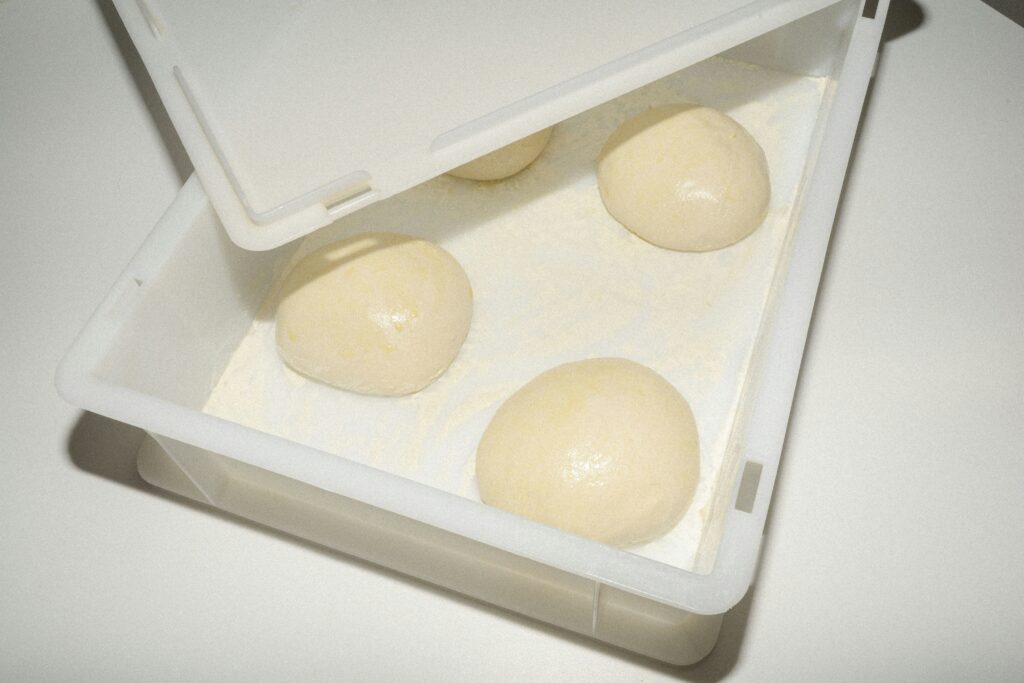
Why does pizza make you thirsty? Is the cause incomplete maturation or bad leavening? Let’s find out together.
It often happens that after enjoying a pizza during a pleasant evening with friends, you spend the night tossing and turning in bed, thirsty and suffering from bad digestion. The cause of all this is the incomplete maturation of the dough and not the bad leavening, as people commonly believes.
The former is a process carried out by yeasts (usually Saccharomyces cerevisiae) which produce carbon dioxide and ethyl alcohol by assimilating the simple sugar present in flour.
This results in the increase of the dough volume; the carbon dioxide produced by the fermentative action of yeast remains trapped in the gluten structure, causing the dough to rise. Leavening is the fastest of the processes taking place in the dough and therefore it is necessary to slow it down in order to favor all the other operations, by placing the dough at a controlled temperature (from 2 to 4 degrees) for a time that is proportional to the strength of the flour.
Performed by the enzymes contained in flour, maturation is instead the set of processes which lead to the progressive breakdown of the most complex structures – such as proteins, starches (complex sugars) and fats – into simpler elements. In particular, complex sugars are gradually transformed into simple sugars, whereas proteins are transformed into amino acids. Maturation process is extremely important when making a good pizza, as it helps to obtain the typical aromas and colors of quality bakery products, as well as improving leavening and digestibility.

Digestion consists in transforming the ingested food into substances that the body can easily assimilate; in fact, when it reaches the intestine, the complex sugars and proteins contained in it are broken down by the enzymes. Correctly matured dough results in a pizza that is already partially broken down into amino acids and simple sugars. This greatly simplifies the work of the digestive system, which has a reduced quantity of starches and proteins to process. In conclusion, maturation and baking are extremely important because they make the final product more digestible.
The expertise of a pizza maker is also measured through the careful evaluation they do of the flour to use, for improving the hydration, maturation and leavening of the dough in order to constantly realize a quality, well digestible product that does not make you thirsty. However its efforts are often wasted by some customers; in fact, in order to satisfy their palate, some of them add filling ingredients which are already by nature very salty, such as ham for example. These ingredients inevitably make the pizza heavier, leading to a higher demand of water and complex digestion.



